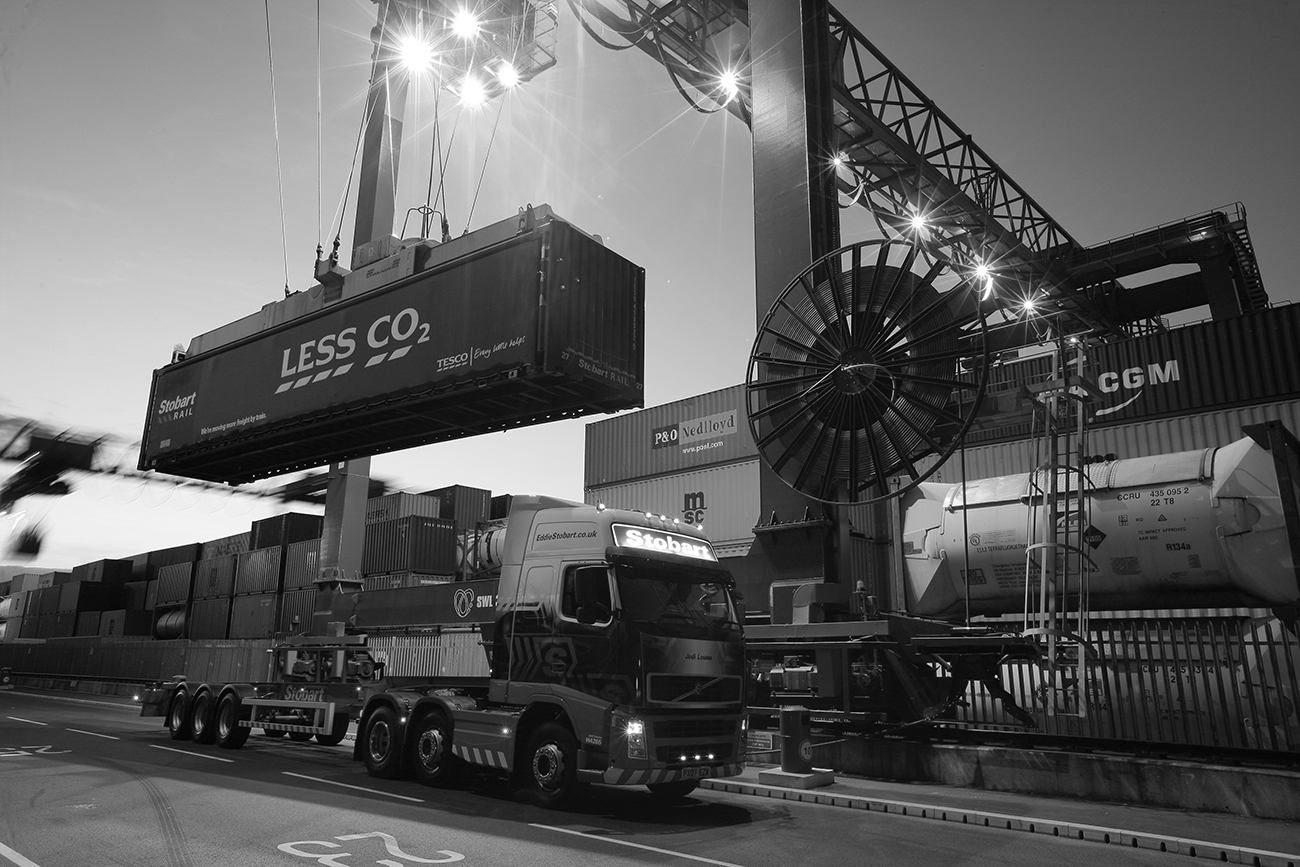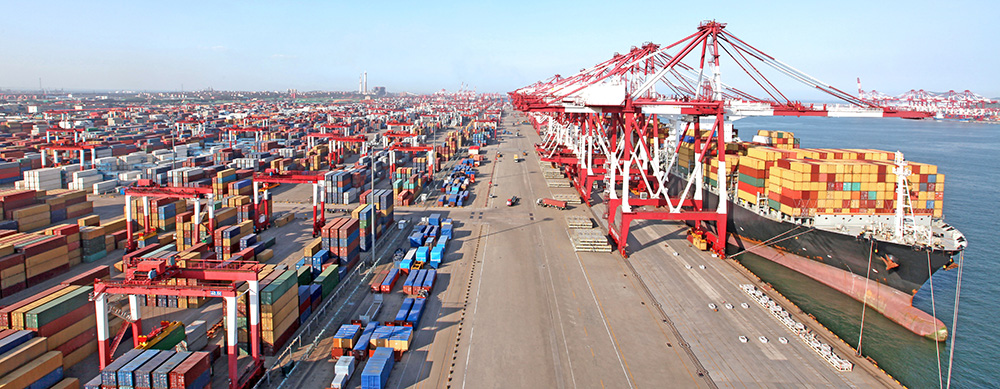Maritime and Logistics
The Maritime and Logistics sector is a key employment and wealth generating sector for the Liverpool City Region.
A modern and efficient Maritime and Logistics sector is vital to support global supply chains across a wide range of other key sectors in the Liverpool City Region and beyond. This helps ensure that businesses are competitive and are able to access reliable low-cost sourcing of materials and components, and secure effective distribution of their products.
An efficient and innovative logistics sector has also fuelled the rise and expansion of on-line retailing.
The sector has seen considerable levels of investment in recent years, not least in the Port of Liverpool. Liverpool2 is a £400 million investment to create a deep-water container terminal that will enable the largest vessels to call at the port.
As with many sectors, automation and technological change will have an impact on the Maritime and Logistics sector and the different job roles within it, and the sector is increasingly becoming more complex with a shift to higher value job roles. The adoption and use of technology in warehousing and logistics continues to increase – especially in areas such as stock control and retrieval.
In many job areas – especially driving roles – an ageing workforce is increasingly becoming an issue. Given this, and new ways of working influenced by technology, employers will increasingly have a large number of diverse roles available for adaptable and well-organised individuals.
Key Liverpool City Region employers include Peel Ports; Stobart Group; TJ Morris; QVC; Liverpool John Lennon Airport; Wincanton; Stena Line, Atlantic Container Line UK Ltd. (ACL).
Maritime and Logistics
LCR Vacancies
Halton Vacancies
Knowsley Vacancies
Liverpool Vacancies
Sefton Vacancies
St. Helens Vacancies
Wirral Vacancies
*When clicking through to ‘Search Vacancies’ you will be taken to Find a Job. The number of vacancies available will be different to that displayed as these are taken from multiple sources.
Career Progression Pathway
Whether you are interested in an apprenticeship, traineeship or you already work within this sector, the following career progression pathway diagram provides a basic overview of some of the roles available at various levels.
The roles detailed within the diagram are just a few of those available and demonstrate how continued learning can help you progress through this particular sector whether you have just started your career journey or are looking to move on up.
Each role detailed, provides a brief overview, highlighting the responsibilities and duties involved, as well as average salary and what level of learning the role is associated with.
Job Level 2 – 3
Delivery-Van-Driver
Level: 2
Salary From: £16,000
Average Salary: £20,500
Salary To: £25,000
Delivery van drivers collect parcels from a depot and deliver them to customers.
Airport-Baggage-Handler
Level: 2
Salary From: £15,000
Average Salary: £21,500
Salary To: £28,000
Airport baggage handlers load and unload luggage and cargo from aircraft.
Warehouse-Worker
Level: 3
Salary From: £16,000
Average Salary: £20,000
Salary To: £24,000
Warehouse workers take delivery of goods and pack orders for dispatch.
Port-Operative
Level: 3
Salary From: £16,000
Average Salary: £21,500
Salary To: £27,000
Port operatives work with cargo, passengers and marine craft in ports and harbours.
Forklift-Driver
Level: 3
Salary From: £17,000
Average Salary: £23,500
Salary To: £30,000
Forklift drivers load and unload goods in warehouses, ports and airports.
Job Level 4 – 5
Airline-Customer-Service-Agent
Level: 4
Salary From: £15,000
Average Salary: £20,000
Salary To: £25,000
Airline customer service agents make sure passengers and their luggage safely board the right aircraft at the right time.
Import-Export-Clerk
Level: 4
Salary From: £18,000
Average Salary: £24,000
Salary To: £30,000
Import-export clerks ship goods to and from the UK by road, rail, air and sea.
Finance-Officer
Level: 4
Salary From: £19,000
Average Salary: £26,500
Salary To: £34,000
Finance officers help to manage the finances of an organisation by keeping track of its income and controlling its spending.
Large-Goods-Vehicle-Driver
Level: 4
Salary From: £19,000
Average Salary: £27,500
Salary To: £36,000
Large goods vehicle (LGV) and heavy goods vehicle (HGV) lorry drivers transport and deliver goods between suppliers and customers.
Tanker-Driver
Level: 4
Salary From: £19,000
Average Salary: £27,500
Salary To: £36,000
Tanker drivers transport bulk materials and liquids by road.
Road-Transport-Manager
Level: 4
Salary From: £23,000
Average Salary: £39,000
Salary To: £55,000
Road transport managers make sure goods and passengers reach their destinations safely, on time and in the most cost-effective way.
Warehouse-Manager
Level: 5
Salary From: £23,000
Average Salary: £28,500
Salary To: £34,000
Warehouse managers plan and co-ordinate warehouse operations at distribution depots, retail superstores and manufacturing plants.
Transport-Planner
Level: 5
Salary From: £20,000
Average Salary: £32,000
Salary To: £44,000
Transport planners manage road, rail and air transport networks at local, regional and national level.
Supply-Chain-Manager
Level: 5
Salary From: £24,000
Average Salary: £36,000
Salary To: £48,000
Supply chain managers organise the movement of goods and materials from suppliers and manufacturers to customers.
THERE ARE MANY ROLES WITHIN THE MARITIME AND LOGISTICS SECTOR.
TO SEARCH SPECIFIC JOB DESCRIPTIONS CLICK HERE


 Afrikaans
Afrikaans Arabic
Arabic Chinese (Simplified)
Chinese (Simplified) Dutch
Dutch English
English French
French German
German Greek
Greek Hebrew
Hebrew Italian
Italian Japanese
Japanese Korean
Korean Kurdish (Kurmanji)
Kurdish (Kurmanji) Latvian
Latvian Lithuanian
Lithuanian Persian
Persian Polish
Polish Portuguese
Portuguese Romanian
Romanian Russian
Russian Slovenian
Slovenian Spanish
Spanish Sundanese
Sundanese Ukrainian
Ukrainian Urdu
Urdu Welsh
Welsh